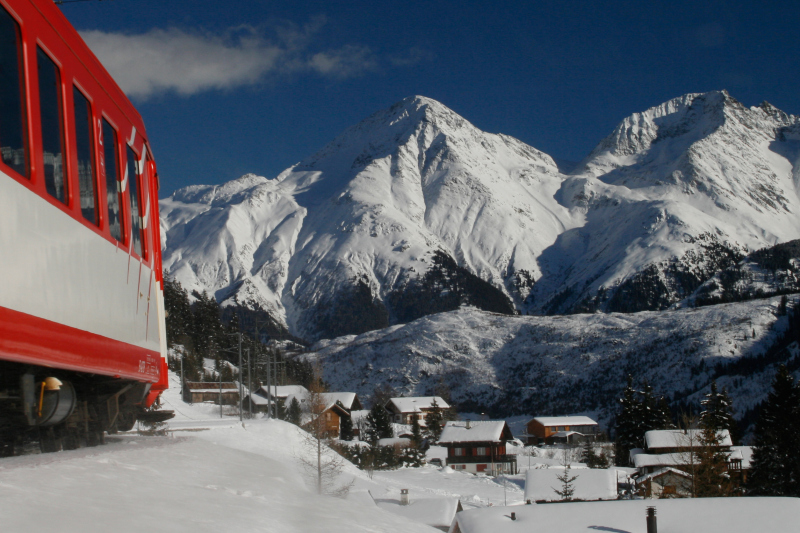Jeremy Smith speaks to Daniel Elkan, who founded Snowcarbon to make it easier for skiers travelling to the Alps to get there as sustainably as possible.
1: What inspired you to create your business?
2: How does being responsible help your business attract potential customers?
3: How do you engage guests in your responsible tourism activities?
Simply by travelling by train, skiers are engaging in responsible tourism in terms of mode of travel. Per person, a journey to the Alps by plane creates about 120kg of Co2, a place in a full car about 55kg, and a journey by train about 11kg. So it’s a big saving in terms of pollution and resources.
But it would be great to go further, in the future, to make every train journey contribute positively to the environment in some way – not just saving resources but actively contributing to important environmental issues – perhaps linked with protecting areas of rainforest, or planting trees where they are needed – or something like that.
4: What is the responsible tourism initiative of which you are most proud?
One of the initiatives of which I’m most proud is the film we have recently made about how children make the journey part of the holiday. In 16 years of travelling by train to the Alps, I’ve seen countless families enjoying the journey. You walk down the gangway of a Eurostar or TGV for example, look around you at what the children are doing. It’s fantastic: chatting with family or friends, playing games, drawing, scribbling. Parents often tell me that when their ski holiday is approaching, it’s the train journey that gets the children most excited.
I wanted to tell that story, to inspire more families to see that the train is the way to go. So I got a ticket for the Eurostar Ski Train at Easter (thanks to help from Crystal Ski), carried my DSLR camera on board and asked children to tell me about why they enjoy train travel. The enthusiasm with which they, and their parents, greeted my questions was really heartwarming. The film I made came runner up at the TV/e Global Sustainabilty Film Awards, and it’s a film that other travel websites are using to communicate the benefits of train travel to the Alps too, so a good way of spreading the word.
5: What positive impacts does your tourism business have on the community / environment where you are based?
6: What has been the biggest challenge you have faced?
7: What advice would you give to any entrepreneur starting a responsible tourism business?
My first piece of advice is that if you can help fill an important information gap about sustainable travel, you will be doing something really useful – and doing something useful is crucial in business. It’s never been easier for people to access information about travel quickly, but that doesn’t mean they can find out what they really want to know. Some of our most highly viewed pages, for example, are detailed guides on how to change station in Paris – unique information that makes all the difference in terms of enabling journeys.
Second, look for important partners. Before I set Snowcarbon up I spent three months touring the Alps in spring and summer, by train, talking to ski resort tourist offices about the importance helping skiers to travel by train. I asked the tourist offices to become members of Snowcarbon, contributing financially so that Snowcarbon could effectively promote sustainable, enjoyable journeys to these resorts. I remember running out of money while in Switzerland and sleeping in a doorway, the day before a big meeting, wondering if I would succeed in getting the resort partners on board. But I did. Serre Chevalier, in France, was the first resort to join, and soon I had 30 resort partners. I would definitely recommend thinking creatively about which organisations might become partners. And seek other organisations who share your aims and with whom you can develop solutions. We have started working with train-booking website Loco2.com, who have been innovative in helping make booking train travel easier.
Thirdly, research. Ask people – your target market (not necessarily your friends), what they think about your idea. This research need cost you nothing, just conversations. Don’t do it once, do it regularly as your idea evolves. Look for honest feedback, not encouragement. Find out the reasons behind people’s travel decisions, and look to solve their problems. You can learn a lot this way – I certainly still am.
